Introduction & Analysis
This collection of open-source English-language news articles published over the past week highlights significant events and issues concerning Myanmar. The articles highlight the worsening of the safety and security situation in Myanmar, especially in the border regions.
Armed Conflicts and Military Actions
• Junta Airstrikes and Shelling: The Myanmar military continues to conduct airstrikes and artillery shelling across multiple states, raising significant safety concerns for civilians. Reports indicate these attacks have occurred in Kale Township and the southern Shan, Mon, and Karenni (Kayah) states. The junta's extensive airstrikes on villages have forced residents to seek refuge in forests, yet even there they are at risk, as the military also targets areas where cooking smoke is visible. In Nyaungshwe Township, artillery shelling has caused deaths and injuries, severely affecting villages along the Moebye Reservoir.
• Resistance Group Activities: The Arakan Army (AA) has intensified its attacks near the Nat Yae Kan Air Defense Base in the Magway Region. The AA has also captured village camps along the Ann-Padan road and seized the Moe Hti Taung base. Chin-led resistance forces have also captured a key base in Sagaing’s Kale Township.
• Ongoing Clashes and Talks: Clashes persist between the Ta'ang National Liberation Army (TNLA) and junta forces in areas such as Nawnghkio, even as talks are underway in China. Despite these negotiations, the junta has been accused of firing artillery into villages in TNLA-controlled areas, raising questions about the sincerity and effectiveness of the peace talks.
• Impact on Civilians: Indiscriminate attacks by the junta are causing civilian casualties, displacement, and damage to civilian targets in multiple states. Seventeen deaths resulted from junta air and ground assaults on villages in Sagaing.
Human Rights Abuses and Criminal Activities
• Scam Centers and Human Trafficking: Scam centers operating in Myanmar's border regions are rife with human rights abuses. Survivors have reported beatings, torture, and forced labor within these compounds. The Karen Border Guard Force (BGF), aligned with the junta, has been implicated in these illegal activities, including human trafficking, leading to international sanctions.
• Extortion and Travel Restrictions: The junta is reportedly demanding money at checkpoints on the Shan State highway, with travelers subjected to thorough inspections and extortion. These checkpoints, along with increasing travel restrictions, particularly for young people, highlight the oppressive environment and the junta’s attempts to control the population.
• Targeting of Healthcare: The regime has forced four private hospitals to temporarily shut down in Yangon, allegedly due to their association with the Civil Disobedience Movement (CDM), further limiting access to healthcare.
Displacement and Humanitarian Crisis
• Forced Displacement: Airstrikes and ongoing conflict have led to significant displacement, with thousands of people forced to flee their homes. In Kale Township, attacks have caused residents to take refuge in forests, while in Naypyitaw, homes have been evacuated and demolished to expropriate civilian property.
• Restrictions on Movement: Young people eligible for military service face severe travel restrictions at the Myanmar-China border in Muse Township. Authorities are denying passage to those deemed eligible for conscription, disrupting employment plans and increasing economic despair.
• Impact of Aid Cuts: Cuts to USAID funding are anticipated to have serious repercussions for refugees and displaced populations. US-funded hospitals and clinics in refugee camps along the Thai border have already shut down, affecting healthcare and resettlement programs.
Political Instability and Governance
• Internal Conflicts: The sources reveal a complex web of internal conflicts, including rifts within resistance organizations. The Galon Column, a 300-member resistance group, has split from the National Unity Government (NUG). These divisions can weaken the overall effort to challenge the junta's authority.
• Junta's Illegitimacy: The junta's actions, including its frosty reception of the ASEAN envoy, reflect its diplomatic isolation and desperation for legitimacy. The regime's attempts to control information and suppress dissent further highlight its authoritarian nature.
Regional Implications and International Involvement
• Cross-Border Issues: Thailand is working with the Karen Border Guard Force (BGF) to crack down on call center scam gangs, indicating cross-border cooperation to address criminal activities. However, Thailand's Department of Special Investigation is seeking an arrest warrant for BGF leaders for human trafficking, highlighting the complex relationship and the challenges in combating transnational crime.
• Economic Impact on Migrant Workers: The Myanmar junta has halted the official sending of workers to Thailand, exacerbating the economic challenges faced by migrant workers. This decision, along with stricter travel restrictions, reduces opportunities for those looking for employment abroad.
• China's Role: China is ramping up pressure on Myanmar to take action against online gambling and telecom fraud, reflecting Beijing's concern over these illegal activities. Representatives from the junta and TNLA have convened in China for discussions, indicating China's position as a mediator in the ongoing conflicts.
ASEAN
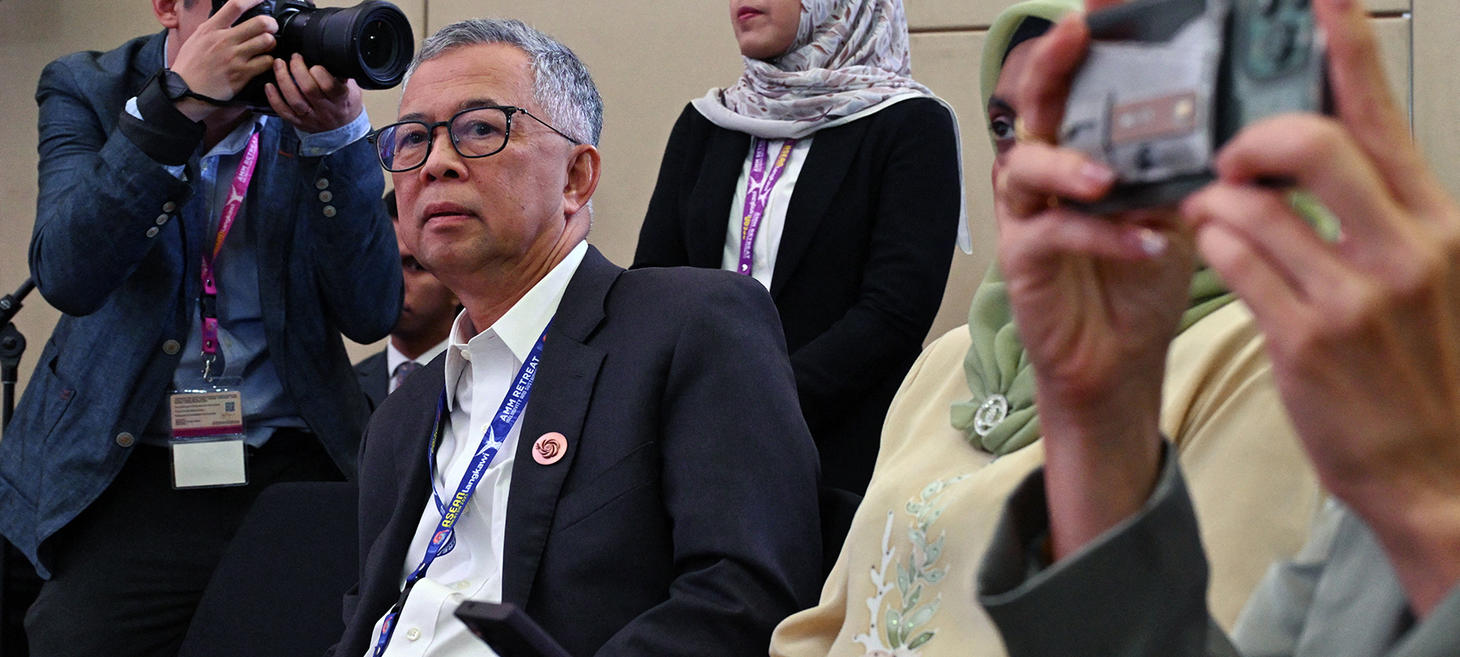
Myanmar Junta Gives New ASEAN Envoy Frosty Reception
Othman Hashim, ASEAN's special envoy to Myanmar, visited the country from February 6-8, 2025, to meet with the junta leadership; however, the visit was notably absent from regime media coverage, a departure from the junta's usual practice of publicizing visits by foreign dignitaries. The junta has been criticized for not honoring ASEAN’s Five-Point Consensus for peace, and high-level junta officials are banned from ASEAN meetings. The envoy's visit may have been toned down due to Malaysia’s tougher stance on the Myanmar issue, with Kuala Lumpur previously calling for tougher measures against the junta. After his trip, the envoy met with revolutionary groups in Bangkok, signaling a potential shift in ASEAN's policy to prioritize talks with groups fighting the regime. Political observers suggest the regime may have cold-shouldered the ASEAN envoy because he is seen as closer to revolutionary forces.
Conflict
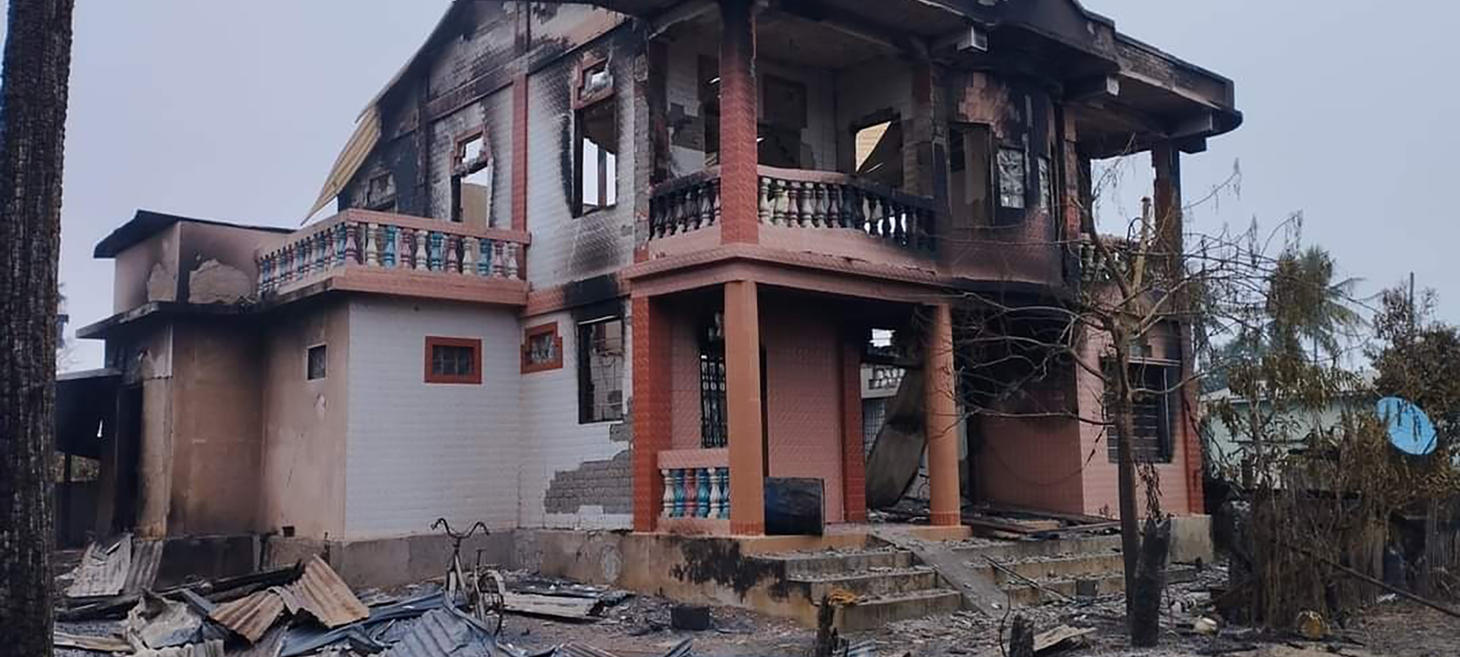
Junta Air, Ground Assault on Villages in Myanmar’s Sagaing Kills 17
Junta air and artillery strikes in Myanmar's Sagaing Region killed at least 17 civilians in Monywa, Chaung-U, and Salingyi townships on Wednesday and Thursday. The attacks also wounded more than 30 people. The junta used paragliders to drop bombs on villages along the Chindwin River near the Monywa-Chaung-U border, killing a child and some women. A displacement camp in Chaung-U was also hit. Around 100 junta troops raided villages as the regime carried out airstrikes, forcing more than 10,000 people from at least 10 villages to flee. According to a resident of Chaung-U Township, the villages targeted by the airstrikes are at least four kilometers apart, indicating they are deliberately targeting civilians and committing war crimes. Since December, the Northwestern Command has continuously carried out raids on villages in Monywa and adjacent townships.
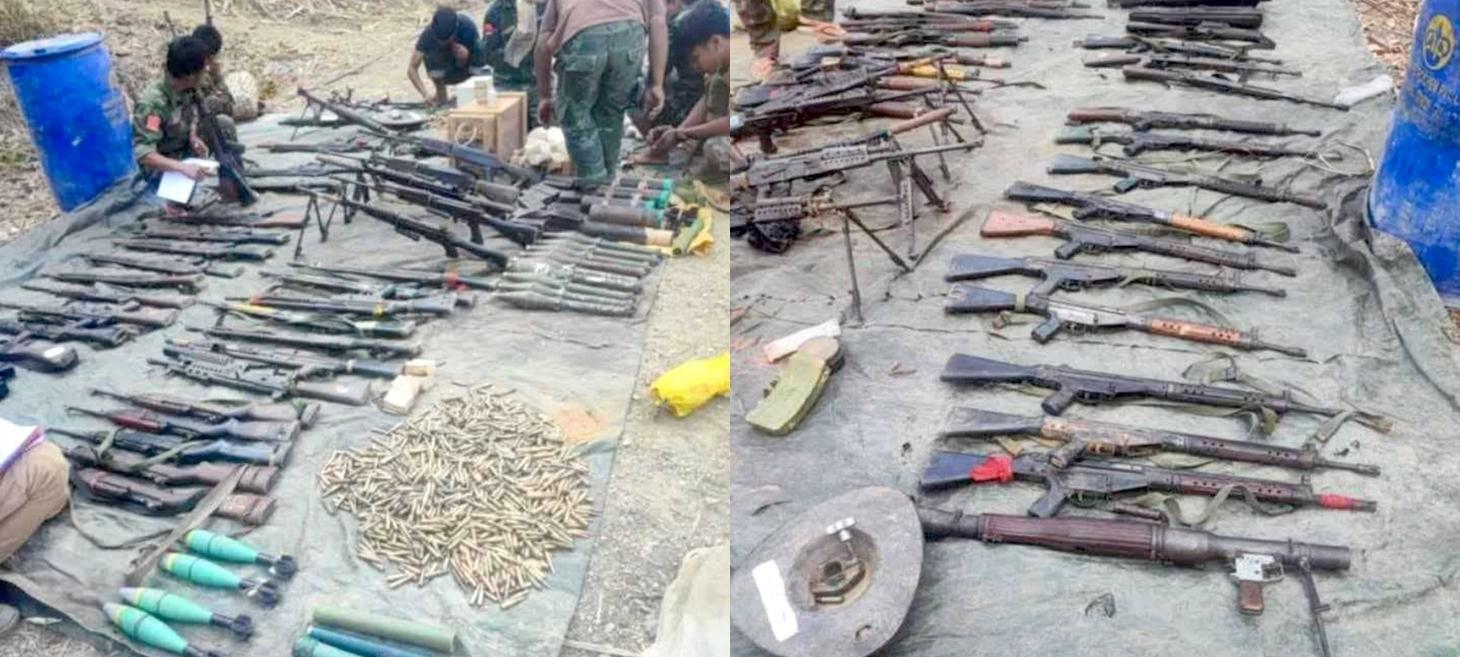
Chin-Led Resistance Forces Capture Key Myanmar Junta Base in Sagaing’s Kale
On February 14, 2025, anti-regime resistance groups, coordinated by the Chin Defense Force (Kalay-Kabaw-Gangaw), successfully captured the Myanmar military’s strategic Kann Parr Ni base in Sagaing Region. The base, located on the Kale-Gangaw Road along the Manipur River, served as a gateway between southern Kale Township and northern Gangaw Township and was manned by regime forces and pro-junta Pyu Saw Htee militia. The resistance forces seized weapons and ammunition after finding the bodies of dead regime forces. The base was the main defensive position for pro-military villages near the Kale and Gangaw townships border. Despite airstrikes conducted by junta warplanes, which have been bombing villages in southern Kale Township since February 7 and have caused civilian casualties and displacement, the resistance groups have persisted. The fall of the base was confirmed by Bullet Hla Swe, a former lawmaker of the military-backed Union Solidarity and Development Party (USDP), who noted that around 70 of his militia fighters and a Myanmar army major were stationed at the base. Additional clashes have been reported as the joint resistance force continues to engage junta reinforcements.
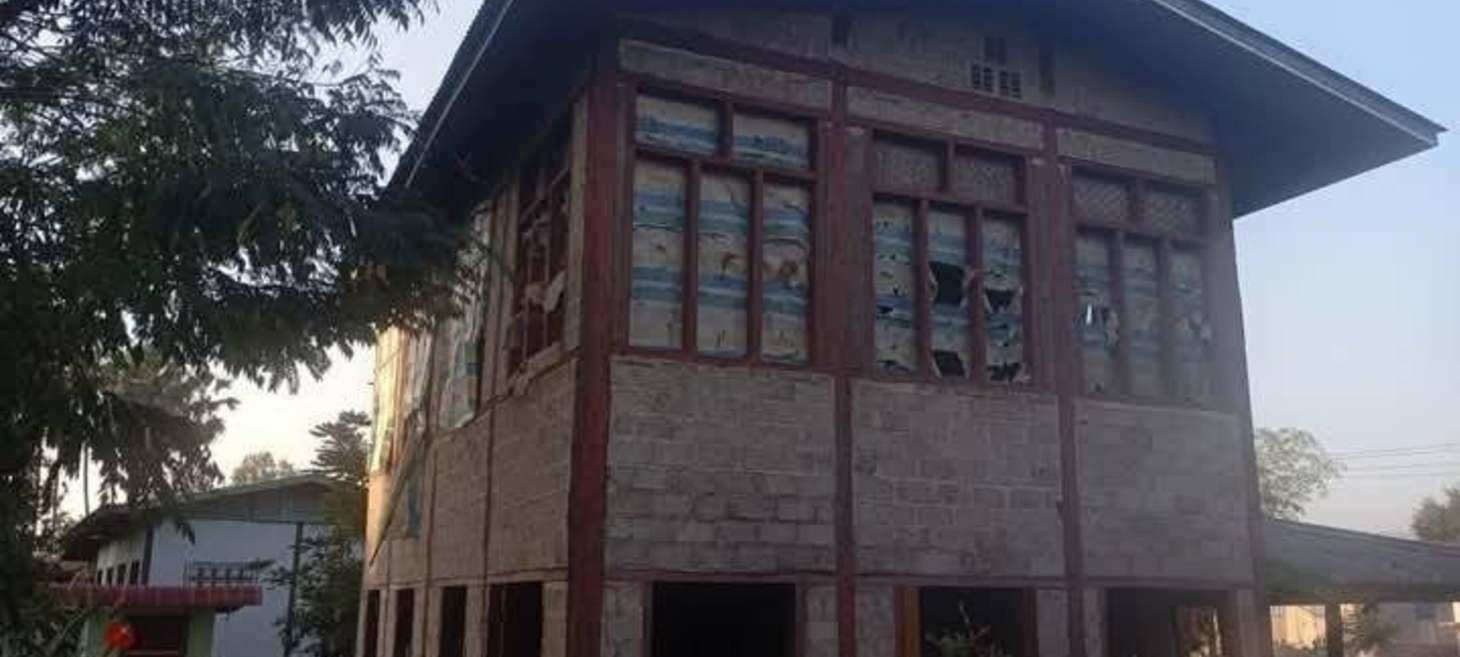
Myanmar Military and PNO Shell Nyaung Shwe, Killing Villagers and Destroying Homes
On February 12, 2025, the Myanmar military and the Pa-O National Organization (PNO) militia launched heavy artillery strikes on Taung Po Kwe village, Nyaung Shwe Township, resulting in the killing of two villagers and serious injuries to two others. Six artillery shells fired from the west bank of the Paikhun River struck the village, destroying homes and causing residents to flee. The injured sustained severe wounds to their legs and arms. On the same day, the military and PNO launched eight more artillery shells, including incendiary bombs, at Nan Tok village in Panglong Township, destroying two houses. These attacks occurred after the PNO conducted a military training ceremony on February 11, recruiting local youth and deploying them to guard posts after only five days of basic training. The continuous artillery bombardments and escalating militia activity have created a humanitarian crisis, with residents calling for an end to the violence and protection for those caught in the crossfire.
Casualties mount across three states in onslaught of shelling, bombing by Myanmar junta
In the first two weeks of February 2025, Myanmar's junta has been attacking areas of southern Shan, Mon, and Karenni (Kayah) states with air and artillery strikes, resulting in casualties and property damage. The attacks, described as indiscriminate, have targeted civilian areas. In Nyaungshwe Township, southern Shan State, at least five people, including a child, have been killed and a dozen injured due to artillery shelling. A man in his 40s and a 10-year-old boy died in Taung Poet Kwe village after shells landed on Wednesday and Thursday.In the first two weeks of February 2025, Myanmar's junta has been attacking areas of southern Shan, Mon, and Karenni (Kayah) states with air and artillery strikes, resulting in casualties and property damage. The attacks, described as indiscriminate, have targeted civilian areas. In Nyaungshwe Township, southern Shan State, at least five people, including a child, have been killed and a dozen injured due to artillery shelling. A man in his 40s and a 10-year-old boy died in Taung Poet Kwe village after shells landed on Wednesday and Thursday.
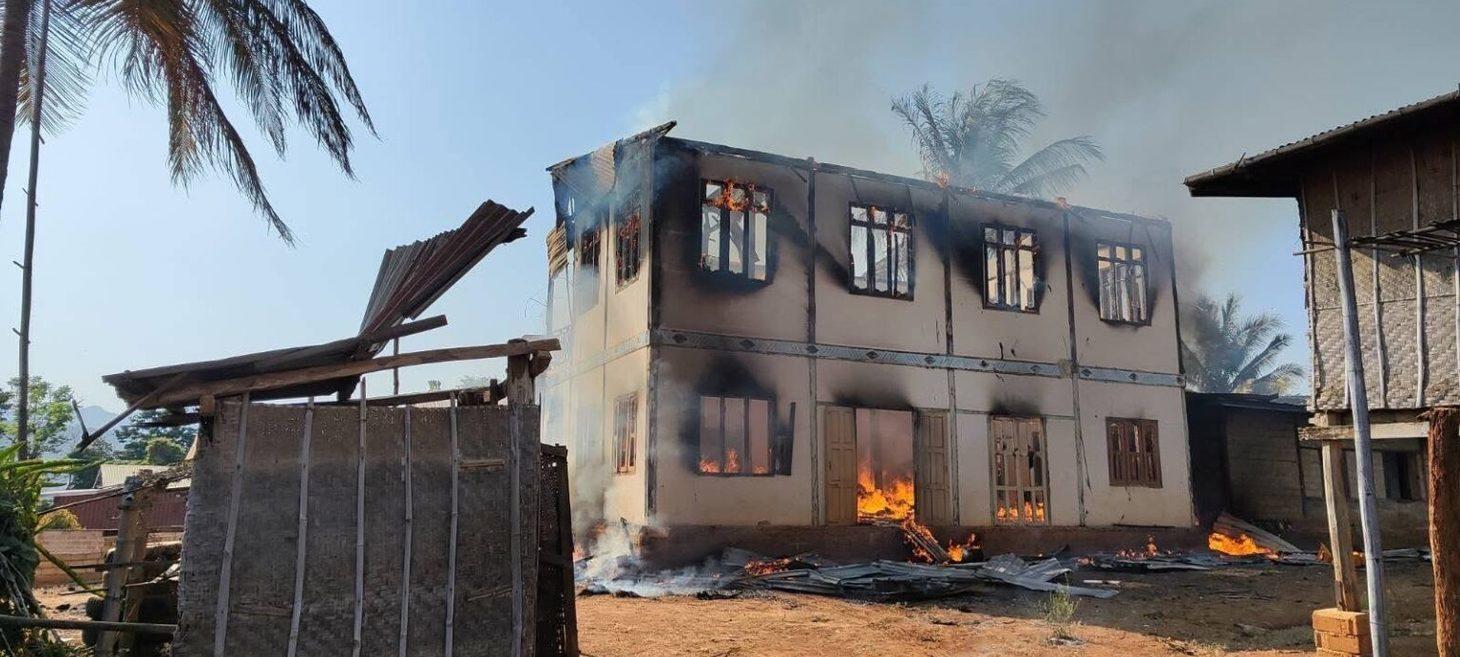
300-member resistance group splits from Myanmar’s National Unity Government
The Galon Column, an anti-junta group consisting of around 300 fighters, has split from Myanmar’s National Unity Government (NUG) and allied itself with the Mon Liberation Army (MLA). This alliance, effective since February 1, 2025, occurred after the Galon Column received orders to redeploy to the Bago Region, leading them to withdraw from the NUG's armed wing in the Southern Military Region. The withdrawal reportedly had the NUG’s approval. The MLA is an ally of the Ta’ang National Liberation Army (TNLA).
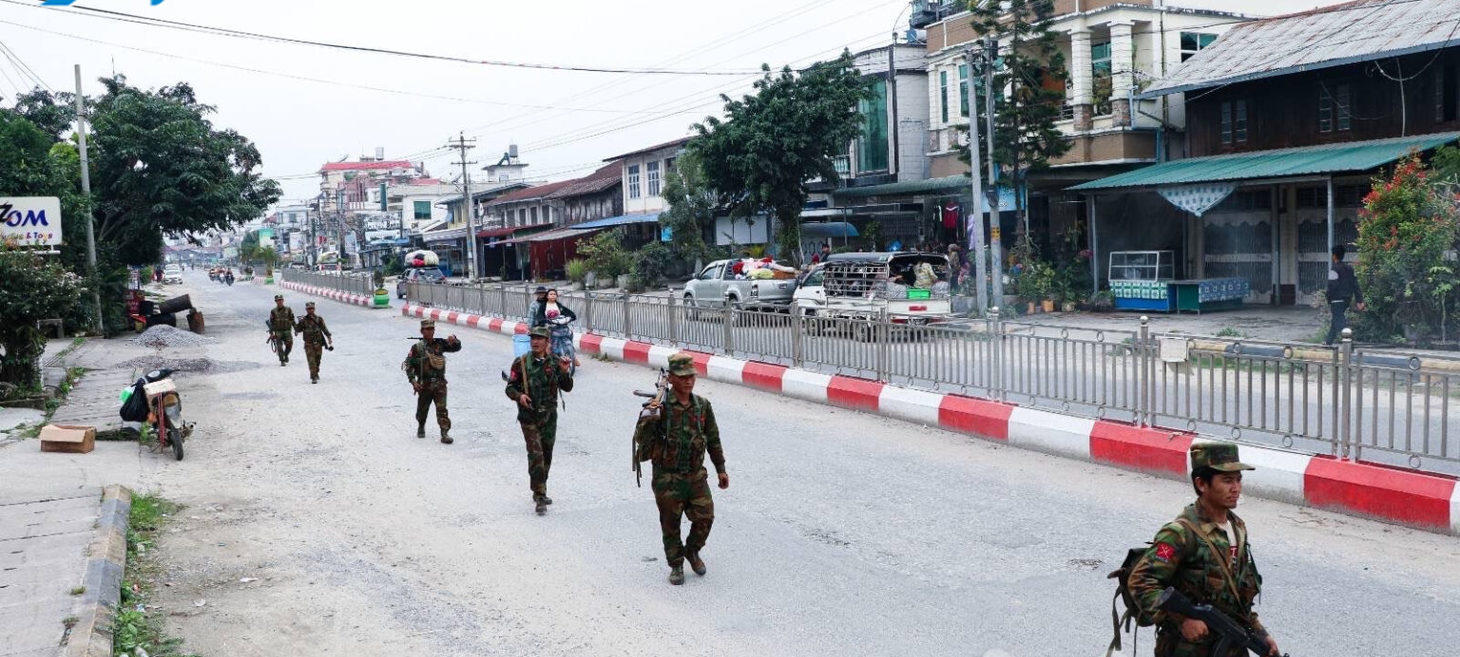
Junta and TNLA meet in China as fighting continues in northern Shan State
Amid ongoing clashes between the Ta’ang National Liberation Army (TNLA) and junta troops in northern Shan State, leaders from both sides are participating in Chinese government-brokered ceasefire negotiations in Kunming, Yunnan Province. The TNLA delegation includes Lt-Gen Tar Gu Jar and Col. Tar Moe Hein. The Myanmar junta’s delegation includes Lt-Gen Ko Ko Oo, head of Military Operations Command 1 (MOC-1) in Kyaukme, northern Shan State. Fighting between the TNLA and junta forces continues in the town of Nawnghkio and nearby areas.
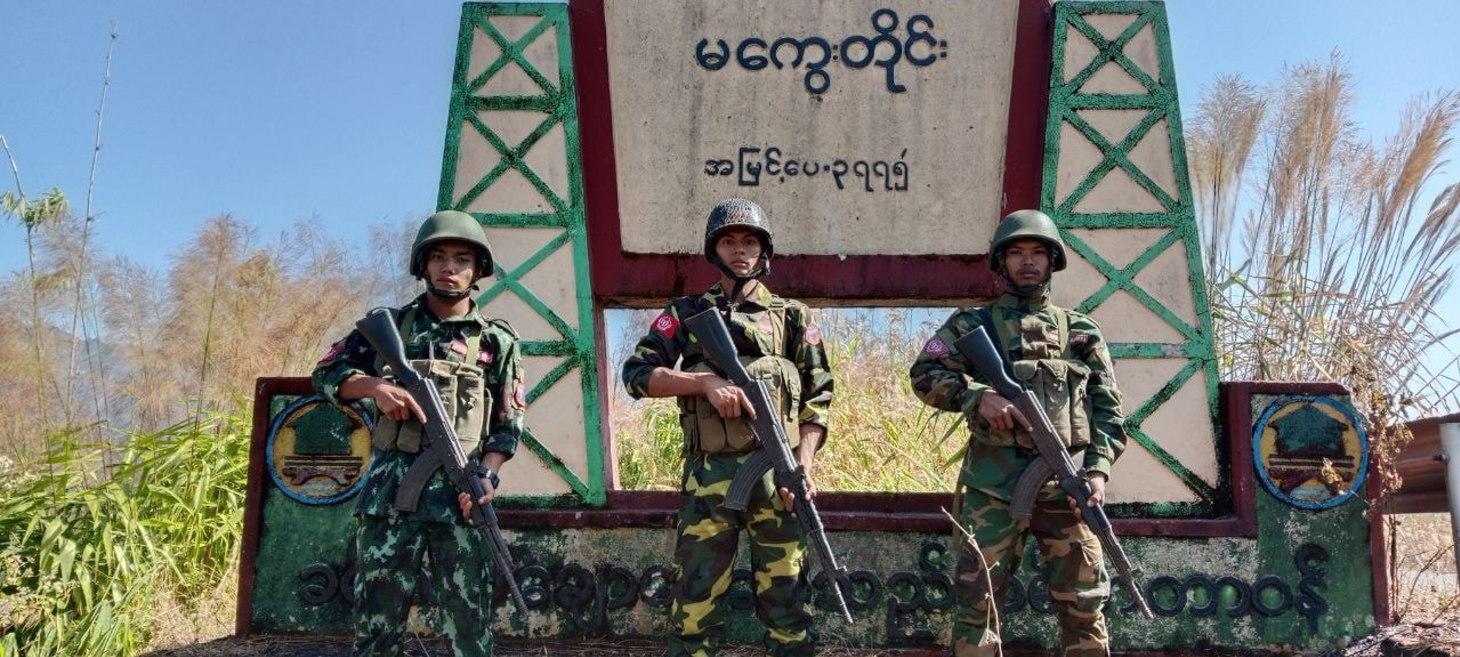
Arakan Army intensifies attacks near air base in Magway Region
The Arakan Army (AA) has intensified its attacks near the Nat Yae Kan Air Defense Base in Magway Region, targeting junta camps along the Ann-Padan road near the Rakhine-Magway border. Clashes have escalated following the AA's capture of Tone Gyi Village, extending to Nat Yae Kan, which is located about five miles east of the village. The junta has responded with intense airstrikes and artillery fire, as the Ann-Padan road is a vital route for sending reinforcements. The Nat Yae Kan base, which now hosts long-range rocket launchers and stationary artillery, is strategically important, and its capture could threaten the junta's arms factory and Artillery Operations Command No. 905 in the Padan military region. Since beginning its offensive in Rakhine State in November 2023, the AA has gained control of 14 out of 17 townships and has expanded operations to regions bordering Rakhine State. Despite signaling openness to diplomatic discussions, the AA and the junta have been unable to initiate ceasefire talks, and the military has continued airstrikes and artillery attacks on AA-controlled townships.
Conscription
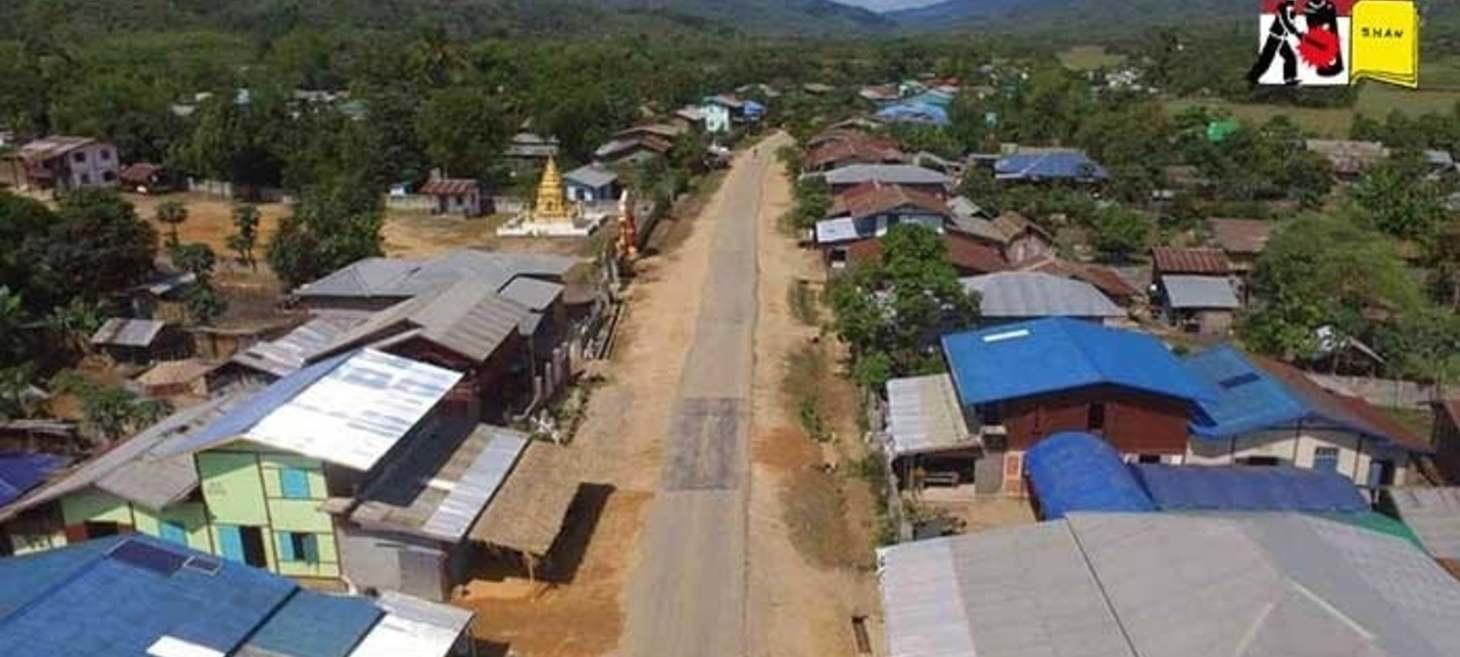
Women Being Registered for Conscription in Mong Hsat Township
In Mong Hsat Township, eastern Shan State, women of conscription age are being registered for conscription in preparation for the first round of female conscription. Previously, only men were registered, but now women are included due to a manpower shortage. The registration process has shifted to identifying women of conscription age since January, sparking concerns among parents. Rumors suggest that those selected via lottery will be drafted into the military, and conscripted women may need to find replacements if they wish to avoid service. This has led to distress and caused some young people to flee abroad or join militia groups. The junta began enforcing the conscription law on February 10, 2024, and the ninth round of conscription for men is underway nationally, with four rounds already held in Mong Hsat. Women members of junta-aligned militias have reportedly been deployed in combat roles in Mobye Township.
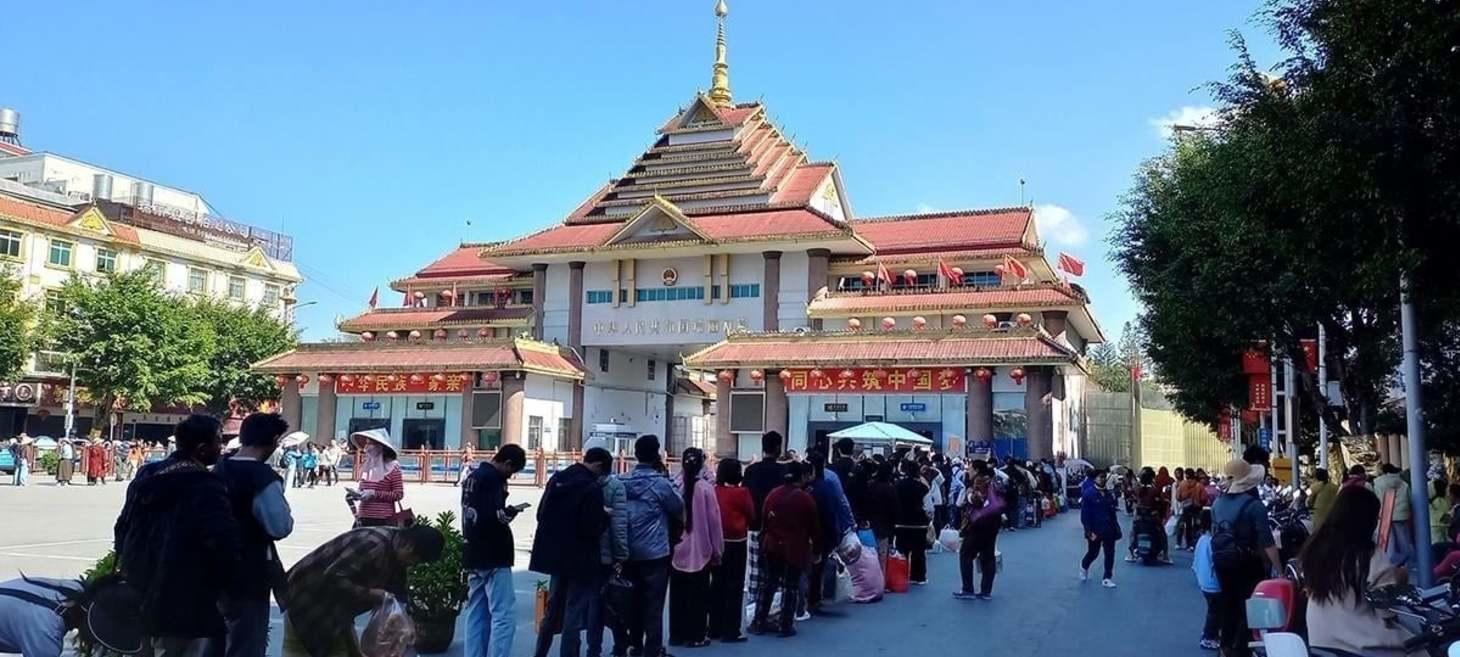
Myanmar Military Blocks Young People from Crossing China Border
The Myanmar military is blocking young people from crossing the China border in Muse Township, Shan State, as of February 12, 2025. Men aged 18-35 and women under 27 are being denied passage, even those with temporary border crossing permits, due to potential military conscription. Both Myanmar and Chinese police are blocking them. To cross, individuals need to prove they haven't been drafted or obtain a letter of recommendation from their ward administrator. This has disrupted the plans of Myanmar workers seeking jobs in China's Yunnan Province. Travel restrictions have been tightening since January 31, especially for conscription-age men, leading to increased scrutiny at checkpoints. Thousands of workers are now stranded or forced to return home, exacerbating the economic and political crisis in Myanmar. Over 4,000 people who entered China with temporary border passes have been repatriated since 2024.
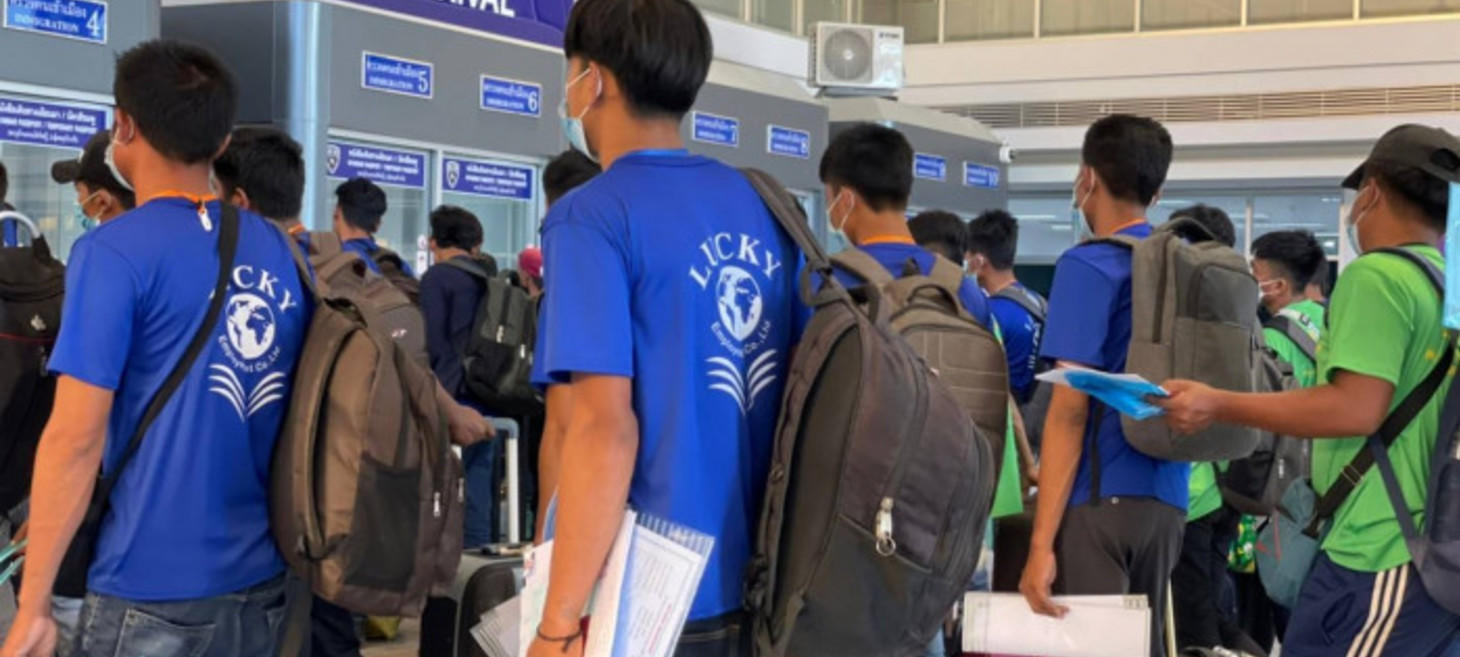
Myanmar junta suspends worker departures to Thailand
The Myanmar junta has suspended the departure of migrant workers to Thailand through official channels, but workers are still allowed to go to other countries with certain restrictions. The suspension began on Friday, and junta officials gave an oral instruction to the Myanmar Overseas Employment Services Entrepreneurs Association. They refused to issue written instructions, stating the suspension only applied to Thailand. The military regime needs more conscripts as it faces increasing pressure from ethnic armies and resistance fighters, and now prevents men aged 18 to 35 from leaving the country. As of March 2024, approximately 2.3 million registered migrant workers from Myanmar were in Thailand, representing about 70% of all registered migrants in the country. Singapore has urged agencies to seek employees elsewhere due to the potential unavailability of workers from Myanmar.
Crime & Narcotics
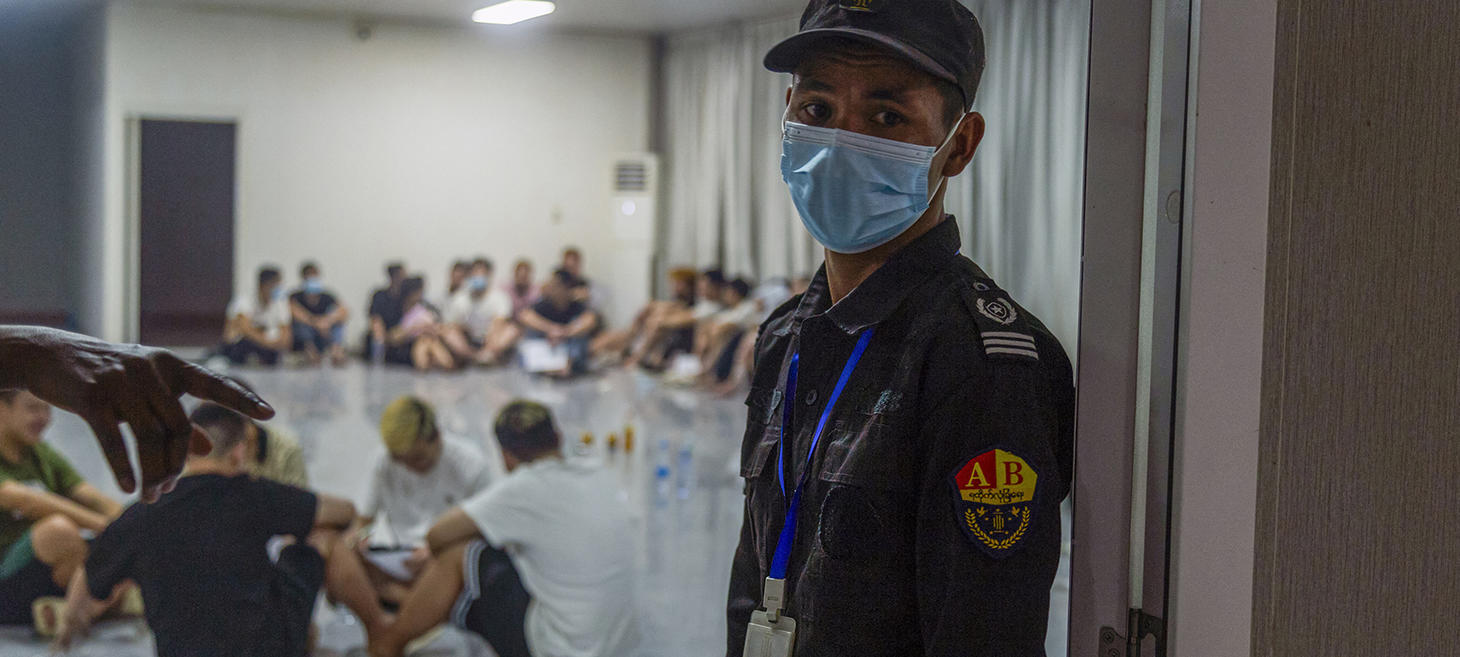
Myanmar Militia Says Ready to Deport 10,000 Cyber Scam Workers
A Myanmar ethnic militia, the Karen Border Guard Force (BGF), announced plans to deport 10,000 individuals linked to cyber scams from the area it controls to Thailand. These scam operations, which have expanded in Myanmar's border regions, involve trafficked foreigners who are forced to defraud individuals worldwide. The BGF has already deported an initial group and is prepared to send 500 people daily. These actions are part of a larger effort to combat cyber scams, with authorities and militia groups in Myanmar and Thailand conducting raids on scam centers. The BGF has stated their commitment to eliminating scams from their territory by arresting human traffickers and fraudsters.
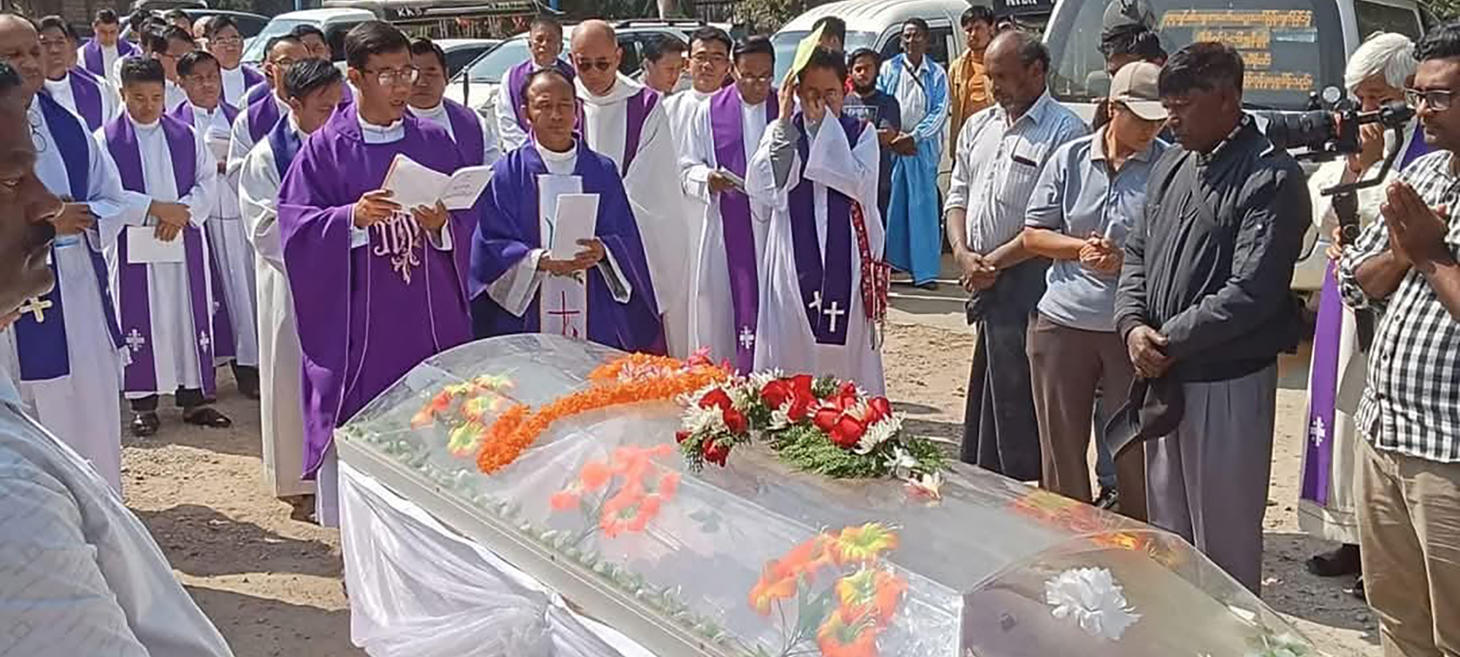
Myanmar’s Catholic Leaders Demand Justice for Murdered Priest
The Catholic Bishops Conference of Myanmar (CBCM) is demanding justice for the murder of Fr. Donald Martin Ye Naing Win, a 44-year-old Catholic priest. Fr. Donald Martin was killed by armed men while serving in Sagaing Region’s Shwebo Township. The Shwebo People’s Defense Force has detained 10 members of a village defense team who committed the murder. The funeral was held in Pyin Oo Lwin. Cardinal Bo said he was "deeply shocked and saddened" by the murder and that the wrongdoing "is not something that can be easily forgotten". He also urged those responsible to ensure justice is served so such incidents do not happen again.
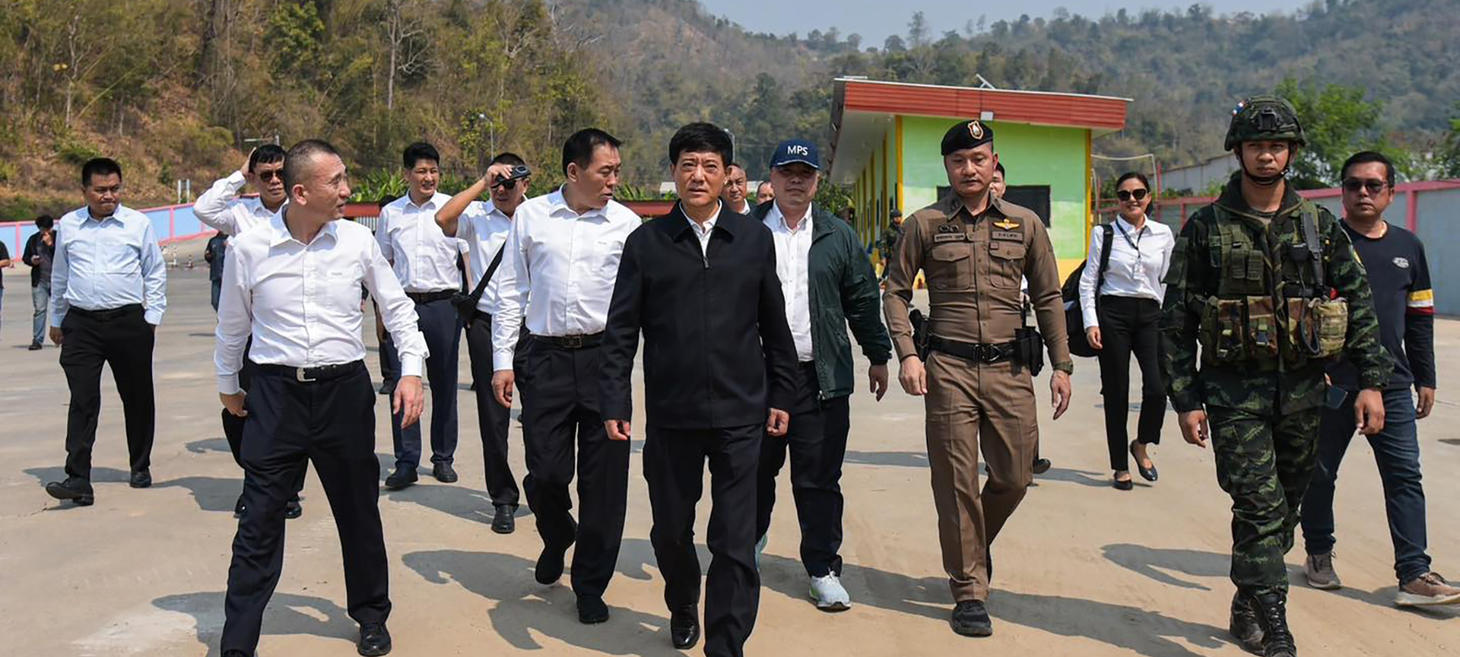
Chinese Security Chief Meets Rescued Victims in Myanmar Scam Hub
Chinese Assistant Public Security Minister Liu Zhongyi met with victims rescued from scam compounds in Karen State's Myawaddy, Myanmar, near the Thai border, before their repatriation. The meeting, which included Myanmar junta deputy home affairs minister Major-General Aung Kyaw Kyaw and a Thai general, occurred as the three countries intensify efforts against border scams. These scam operations are located in areas controlled by the Karen Border Guard Force (BGF), led by Saw Chit Thu. Thailand is preparing arrest warrants for Saw Chit Thu and other BGF leaders, while the junta's response remains unclear. Liu also met with Myanmar officials in Naypyitaw to discuss cracking down on scams, victim repatriation, and the transfer of wanted suspects. The junta claims to have apprehended over 1,030 undocumented migrants at Myawaddy’s KK Park and Shwe Kokko scam hubs since late January, with some already transferred to Thailand. The BGF has also announced its own "crackdown," planning to transfer foreign nationals to Thailand. The junta has attempted to distance itself from the scams, blaming a "neighboring country" for providing resources to the syndicates.

Scam centre survivors tell of beatings, abuse in Myanmar
A recent crackdown on illegal scam operations in Myanmar has led to the rescue of over 260 individuals, many visibly injured, from illicit scam centers located along the Myanmar border. These scam compounds, which have proliferated in Myanmar's borderlands, are staffed by trafficked foreigners forced to defraud people worldwide, generating billions of dollars. Victims like Pieta, a Filipina worker, were lured with promises of high-paying jobs in Thailand but were instead subjected to grueling shifts with no pay, facing beatings and torture for failing to meet targets in online romance and investment scams. The rescued individuals were handed over to Thailand.
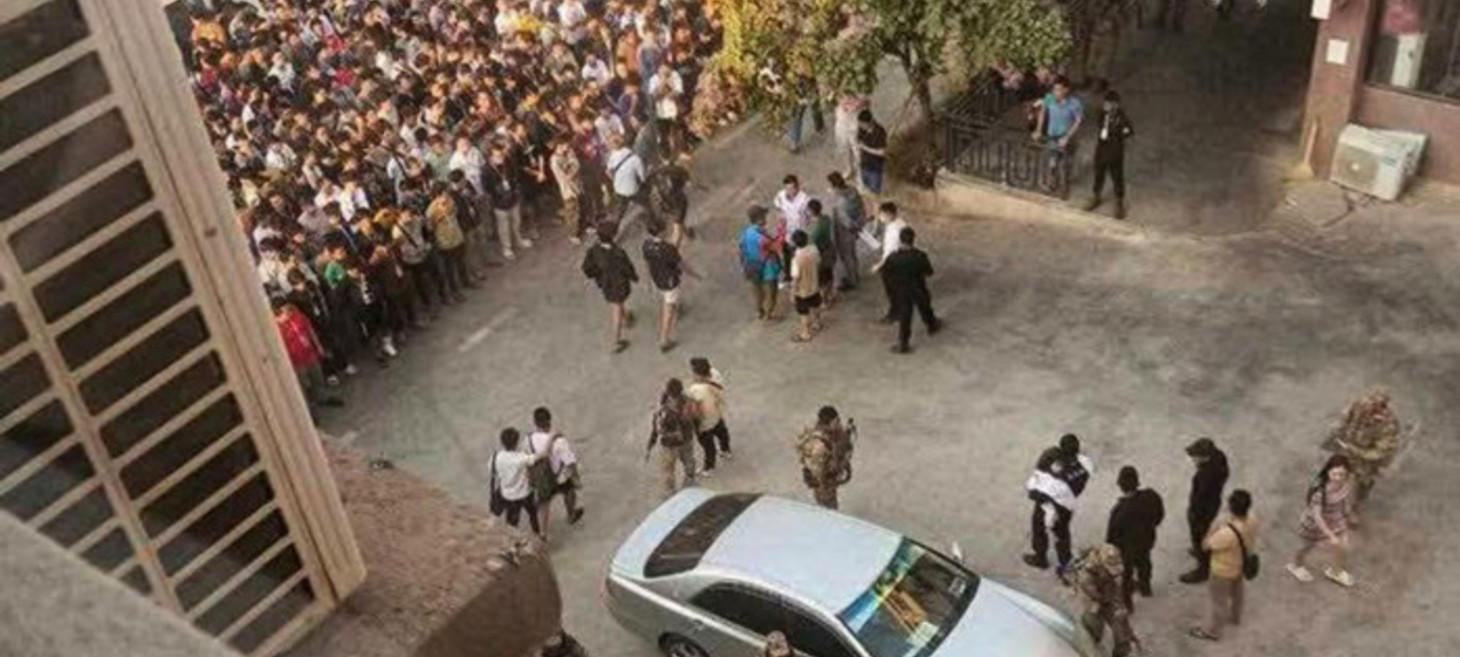
Karen Border Guard Force to help nail scammers
The Karen Border Guard Force (BGF), led by Col Saw Chit Thu, has pledged to collaborate with the Thai government to combat call-center scam gangs operating in Myanmar near the Thai border. Col Saw Chit Thu stated that the BGF will arrest scammers and human traffickers in areas under its control and facilitate the repatriation of trafficking victims, transporting a large number of foreign victims from Myawaddy to Thailand's Mae Sot district. The BGF plans to deport over 8,000 people, mainly Chinese nationals, involved in call center operations. While Thailand has welcomed this cooperation, the Department of Special Investigation is seeking an arrest warrant for Col Saw Chit Thu and two other BGF leaders for alleged involvement in trafficking Indian nationals forced to work in the scam call centers. Despite these allegations and existing sanctions from the UK and EU, the BGF has raided locations in Shwe Kokko suspected of being linked to scammers and human traffickers.
Economy
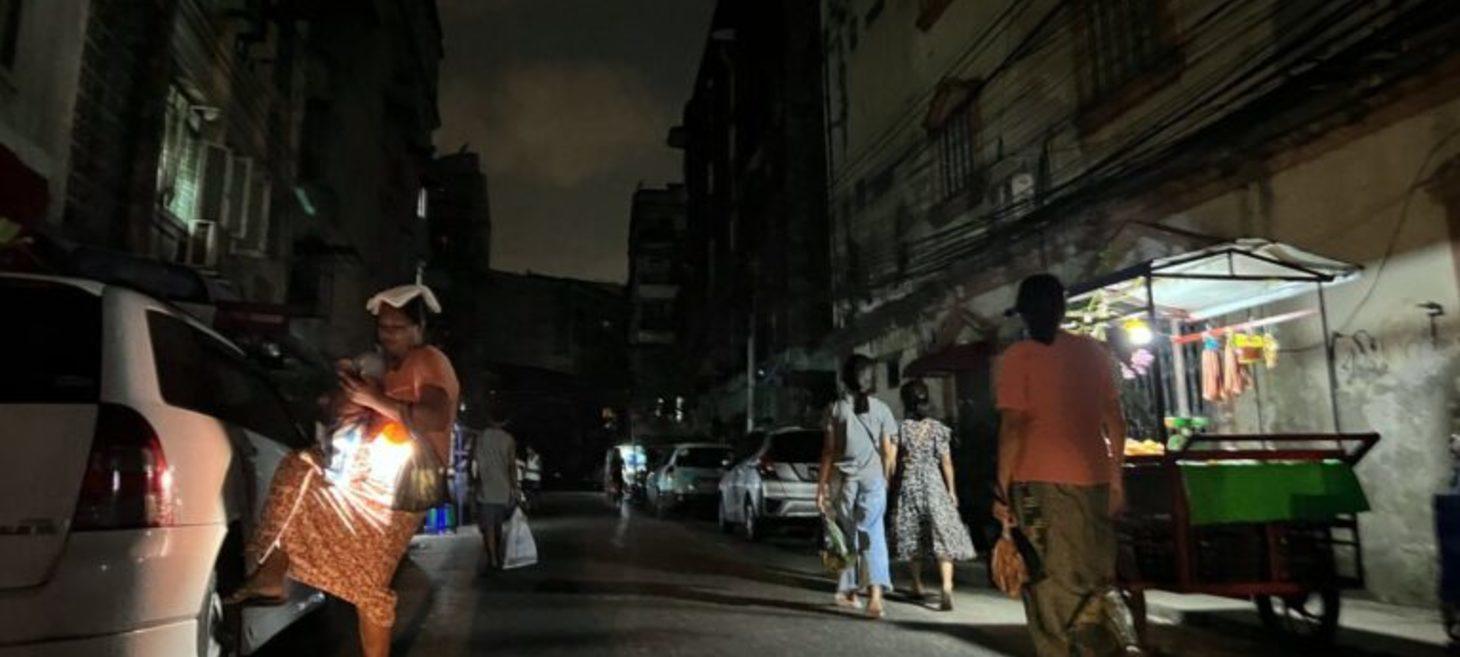
Myanmar’s factories cling to life as power shortages persist
Despite the economic isolation and impacts of the military coup, many factories in Myanmar are still operating, though often at a reduced capacity due to crippling power cuts. Industrial zones are only receiving about four hours of electricity per day, which forces factories to rely on diesel generators, increasing their operating costs. Locally-owned factories are finding ways to continue running, while foreign-owned businesses are more likely to shut down. The chronic lack of electricity and fuel shortages are major causes of factory closures. The situation is reportedly more dire in the Thilawa Special Economic Zone near Yangon than in other industrial zones in Myanmar’s largest city.
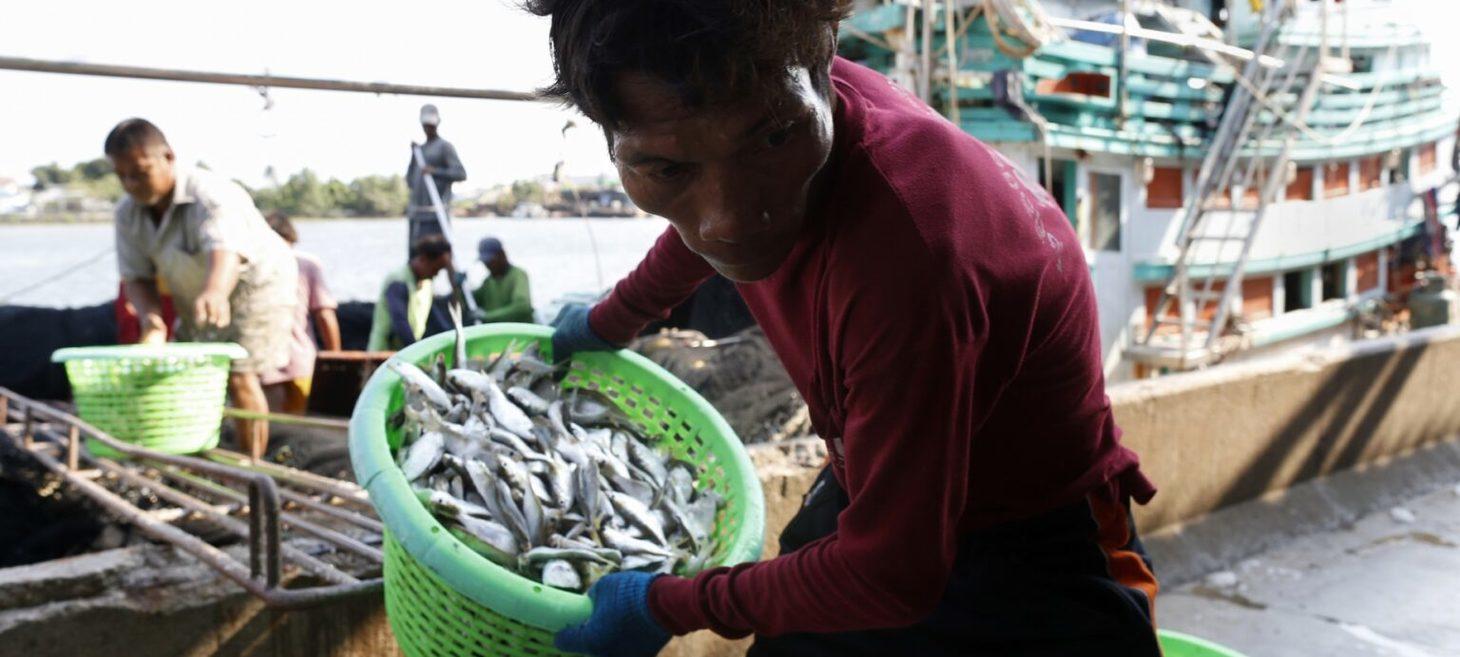
Myanmar junta pauses Thai labor program
Myanmar's military junta has suspended a vital labor agreement that facilitates its citizens' employment in Thailand, specifically the bilateral Memorandum of Understanding (MoU) system, starting on Thursday. The suspension was prompted by an incident on February 12, involving four employment agencies that failed to submit permits on time for 140 workers traveling to Thailand. The owner of an employment agency in Yangon noted that the migrant workers cannot leave the country until their permits and smart cards are issued. The permits for the group in question were not issued, which prevented the laborers from leaving.
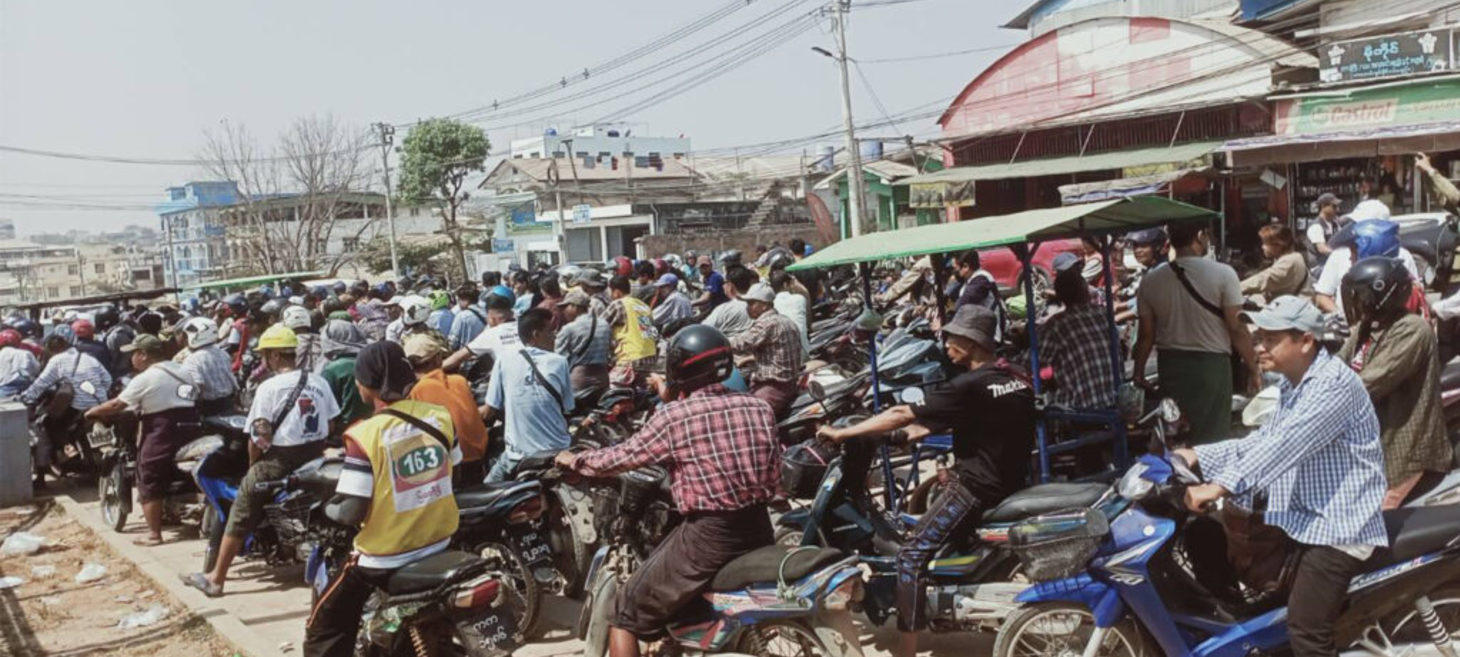
Karen State Struggles as Thailand and Junta Tighten Fuel Embargo
Due to actions by both the Thai government and the Myanmar junta, Karen State is experiencing soaring fuel prices. Thailand has cut off electricity, fuel, and internet to border towns in Karen State, while the junta is preventing fuel tankers from Yangon and Mawlamyine from entering the area. Some places have seen fuel prices triple, with a gallon costing 23,000 kyats compared to the previous price of 11,000 to 13,000 kyats. Fuel is being rationed, and some filling stations have closed. Despite the restrictions seemingly targeting online scam centers, these centers are unaffected as they can afford solar panels, while ordinary residents, patients, and transportation are suffering. Fuel prices in Myawaddy have increased significantly, with a 200-liter barrel costing 4.5 million kyats, compared to 3,000 kyats per liter before the embargo, and most filling station owners are selling in bulk to Chinese businesses.

Myanmar’s factories cling to life as power shortages persist
Despite the economic isolation and impacts of the military coup, many factories in Myanmar are still operating, though often at a reduced capacity due to crippling power cuts. Industrial zones are only receiving about four hours of electricity per day, which forces factories to rely on diesel generators, increasing their operating costs. Locally-owned factories are finding ways to continue running, while foreign-owned businesses are more likely to shut down. The chronic lack of electricity and fuel shortages are major causes of factory closures. The situation is reportedly more dire in the Thilawa Special Economic Zone near Yangon than in other industrial zones in Myanmar’s largest city.
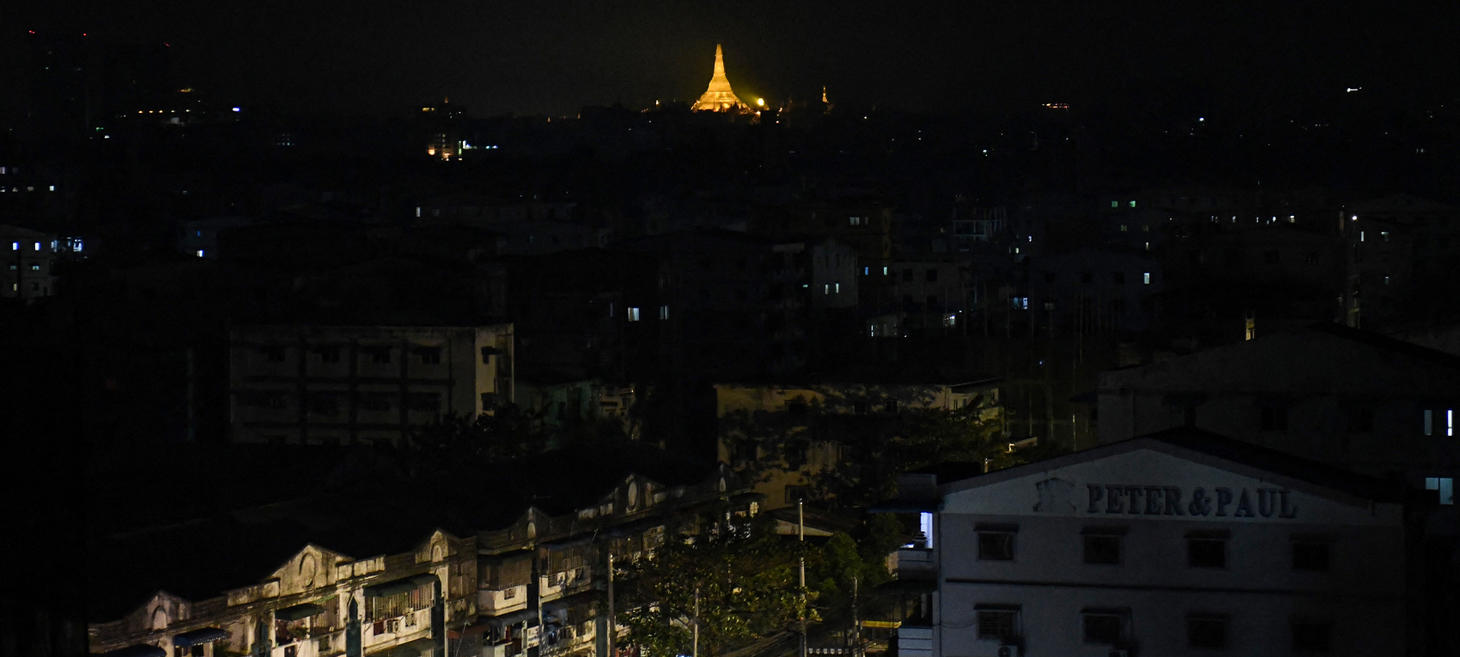
Myanmar’s Blackout Junta Seeks Solar Power Aid From Neighbors
Myanmar's junta is seeking assistance from neighboring countries to transition to solar energy amid a worsening energy crisis. China will help fund four solar power projects. These projects, with a combined capacity of 190 MW, will be located in Yangon, Mandalay, and Naypyitaw. Myanmar is also asking India to install solar power systems at the junta’s central training center and the Department of Electric Power Planning in Naypyitaw under a small development project worth up to US$ 2 million. Electricity generation in Myanmar has decreased by 1,009 megawatts, with daily generation at 2,200 MW, while supply has declined to about 50 percent of total production capacity. The junta has exempted solar equipment from import taxes.
Education
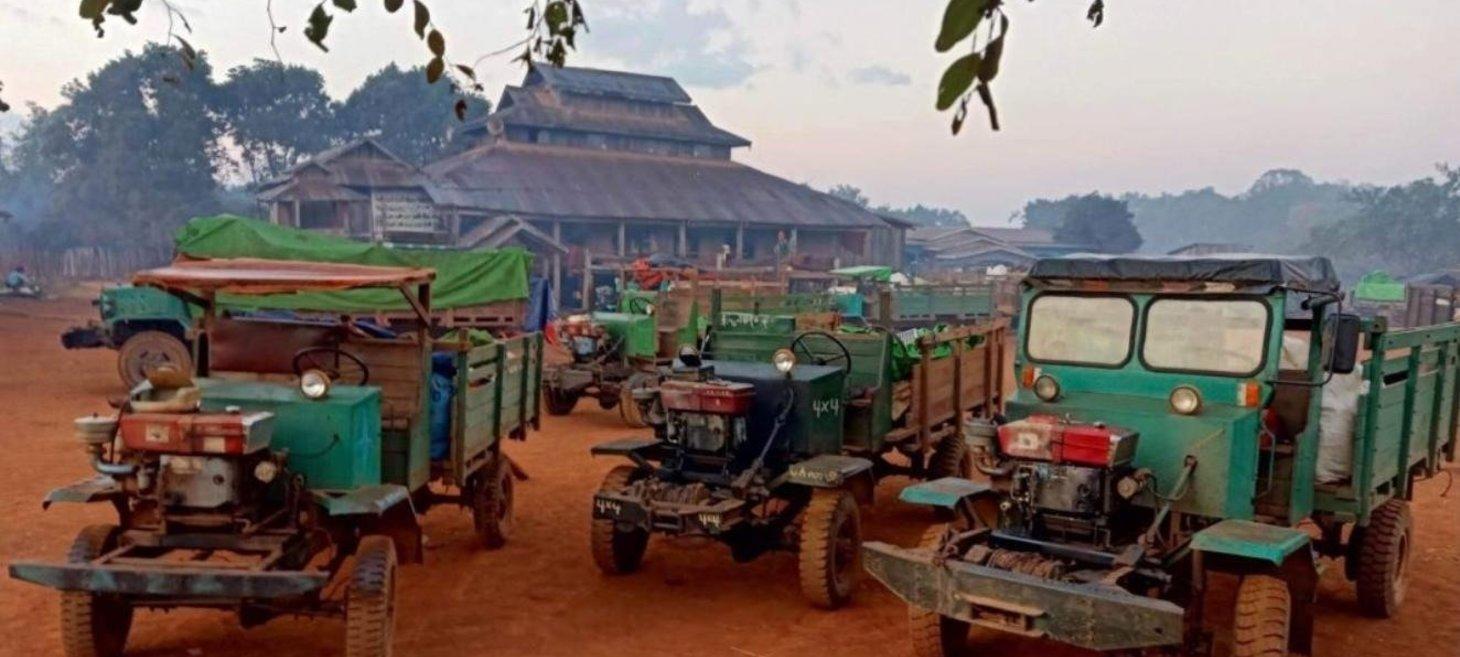
Junta Demands Money at Checkpoints on Shan State Highway
In Shan State, specifically on the road connecting Kyaukme and Lowksawk, the junta soldiers have increased inspections and are demanding money at numerous checkpoints. These checkpoints, which number around 20, require passengers to pay between 5,000 to 10,000 MMK, causing travelers to feel insecure. Passengers are subjected to thorough checks, including presenting documents like national identification cards and travel permits, as well as detailed inspections of their phones. Cargo trucks also face stricter inspections and are required to pay random sums of money to pass. These increased inspections and demands for money have been ongoing since the beginning of January 2025. Additionally, the area has seen fighting between the junta and the Danu People’s Liberation Army (DPLA) in Lawksawk Township.
Ethnic Issues
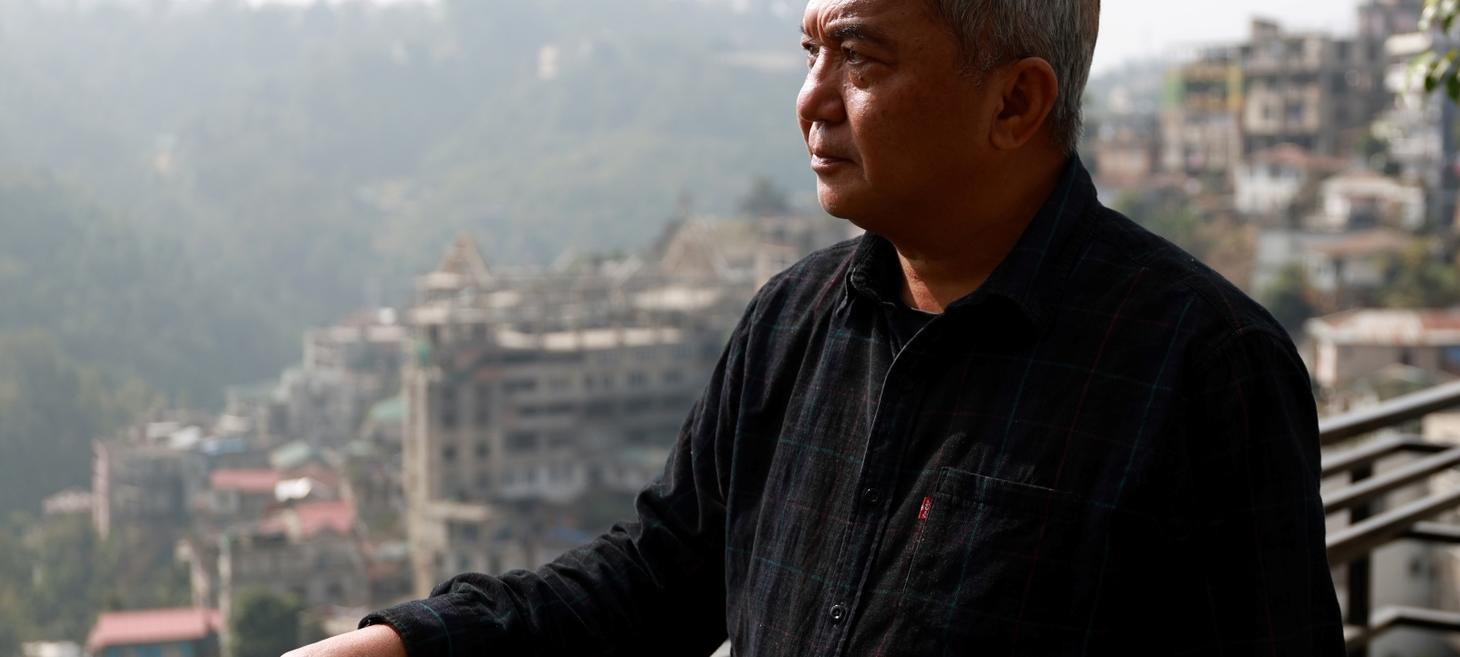
Q&A: ‘The CNF will be abolished after the revolution’, says Chin leader Sui Khar
In an interview with Frontier, Chin National Front (CNF) vice chair Dr. Sui Khar discussed the CNF's goals for 2025, including taking all of Chin State, and military strategies. According to Sui Khar, the CNF plans to target junta forces in the Sagaing and Magway regions, focusing on paralyzing munition factories to weaken the military's capabilities. He also addressed divisions within the Chin resistance, particularly between the CNF-led Chinland Council and the Chin Brotherhood, which stem from disagreements over ideology, strategy, and the representation of Chin's diverse groups. Sui Khar expressed openness to cooperation but warned against the Arakan Army's (AA) influence and agenda in the region. He believes that despite Min Aung Hlaing's underestimation of others and miscalculations, an internal coup is unlikely due to the interconnectedness of senior military leaders. Sui Khar mentioned the CNF will be abolished after the revolution.
Foreign Affairs
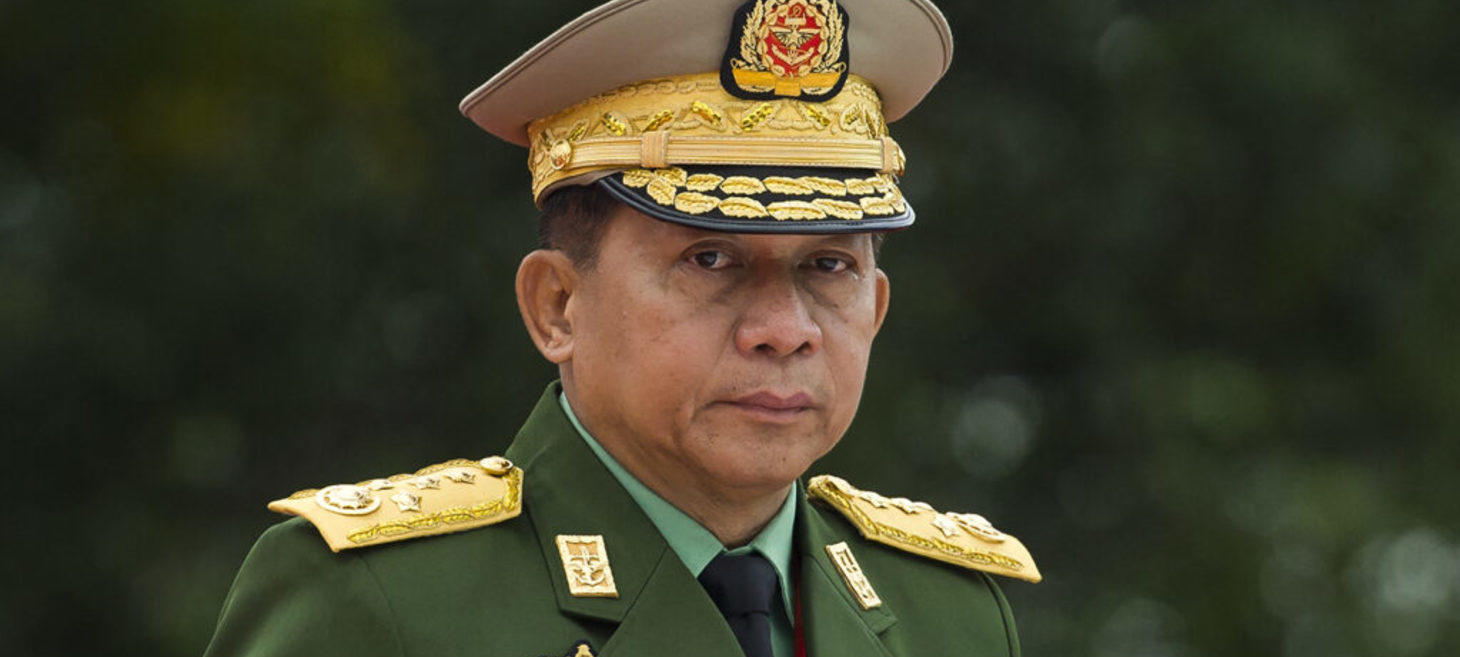
Myanmar Junta Criticizes Argentina Arrest Warrant
An Argentinian court issued an arrest warrant for Myanmar junta leader Min Aung Hlaing, along with other military and civilian officials including ex-president Htin Kyaw and former civilian leader Daw Aung San Suu Kyi, over alleged "genocide and crimes against humanity" towards the Rohingya minority. The legal complaint was filed under the principle of universal jurisdiction. In response, a junta spokesman criticized Argentina's knowledge of Myanmar and suggested they focus on their own judiciary. Tun Khin, president of the Burmese Rohingya Organization UK, welcomed the ruling as a victory for justice. Myanmar has been in turmoil since the 2021 coup, which has sparked clashes with ethnic rebels and the formation of People’s Defense Force groups battling the junta. The Rohingya are a predominantly Muslim community from Myanmar who have been subjected to apartheid conditions, according to Amnesty International. Min Aung Hlaing is also under investigation by the International Criminal Court, and the International Court of Justice is examining a complaint of genocide against Myanmar.
Government Media Sources
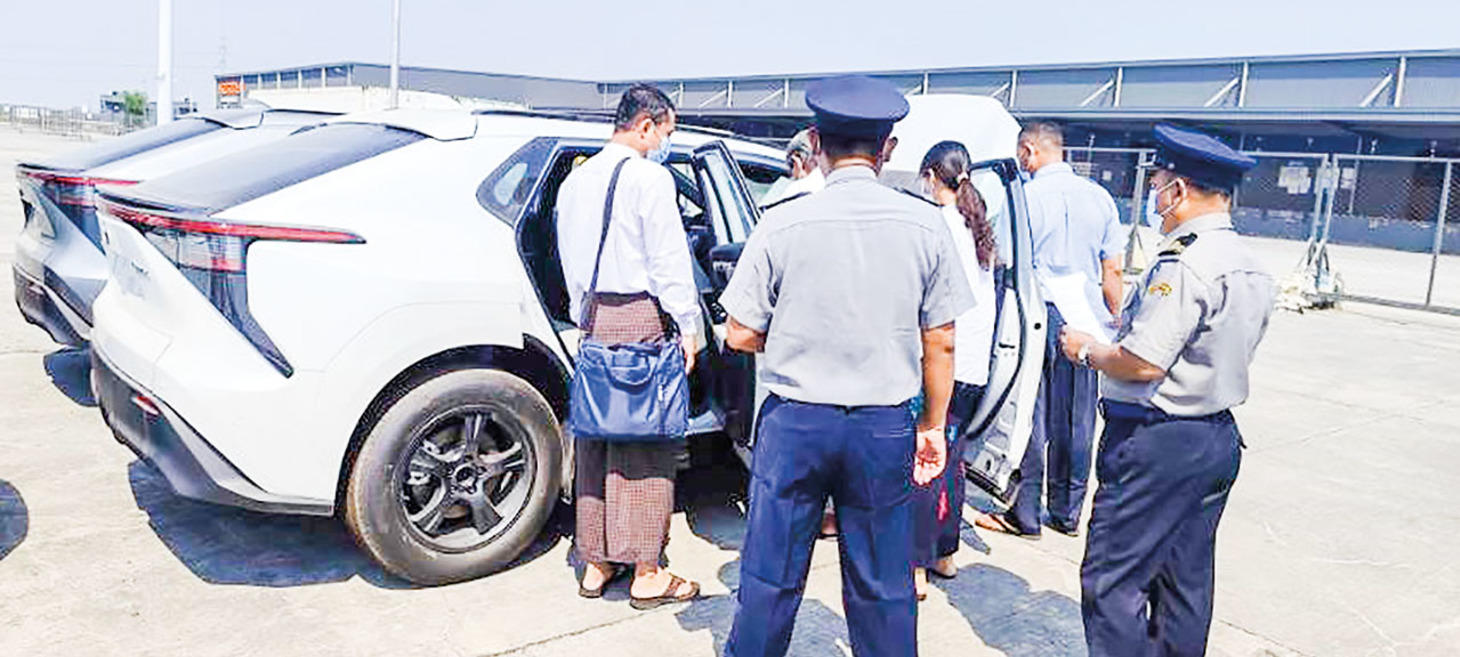
Electric vehicles arrive at Yangon Port
Electric vehicles (EVs) have been imported into Myanmar with the approval of the Steering Committee on National-Level Development for Electric Vehicles and Related Industries. The EVs arrived at Yangon Port and were officially cleared following regulations. The imported EVs include China-made GAC Toyota BZ4X electric vehicles by Amazing Auto Co Ltd, Dongfeng Nissan Ariya vehicles by Asia Pacific Automaker Corporation Co Ltd, BYD Dolphin Mini and BYD Dolphin electric vehicles by Golden Mandala Co Ltd, and the BYD Dolphin imported by EV Power Co Ltd.
Healthcare
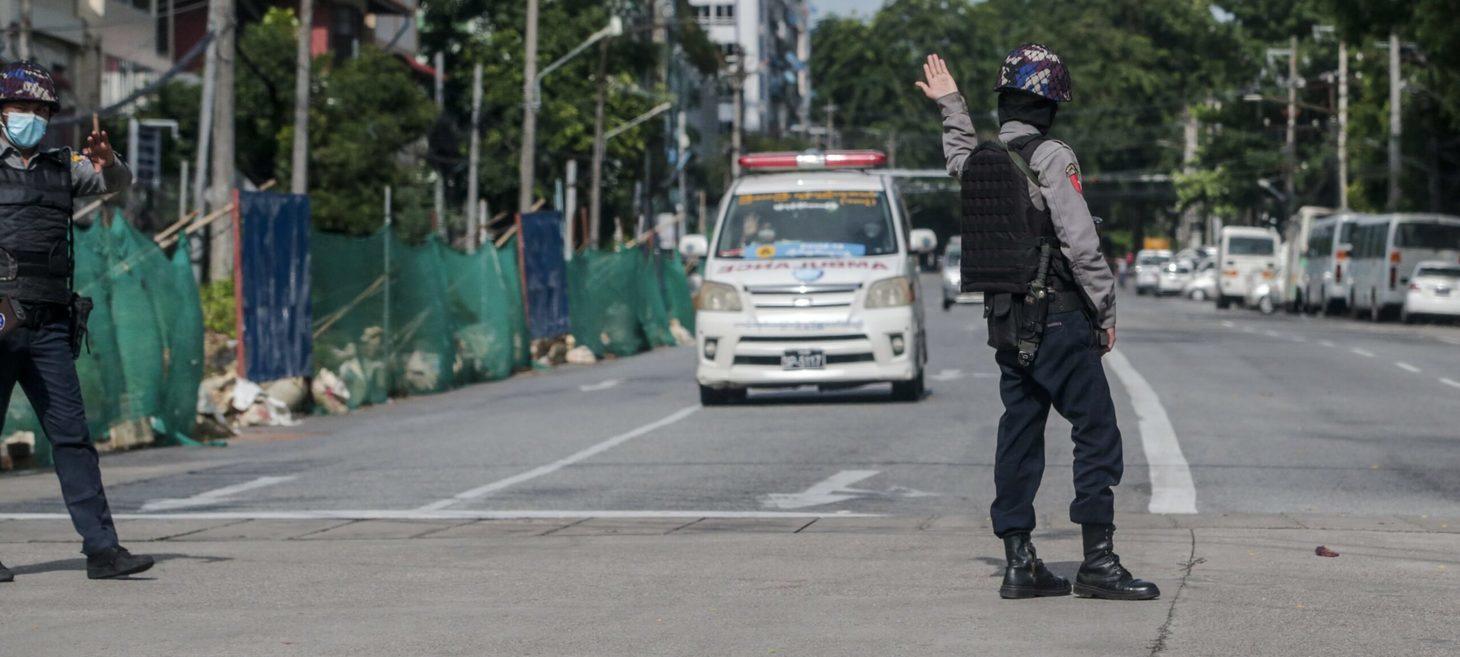
Regime forces four private hospitals to shut down temporarily in Yangon
The military council in Myanmar has ordered at least four private medical facilities to suspend operations for several months starting March 1, 2025. The affected hospitals are Thamine Hospital, Kaung Hospital, Kyan Mar Thu Kha Hospital, and Myat Taw Win Hospital. Kaung Hospital is set to close on March 1 and reopen on June 1. This action is reportedly due to allegations that these hospitals hired individuals involved with the Civil Disobedience Movement (CDM), which organized protests and strikes against the military's 2021 coup. The shutdowns are viewed as a deliberate act of persecution.
Humanitarian
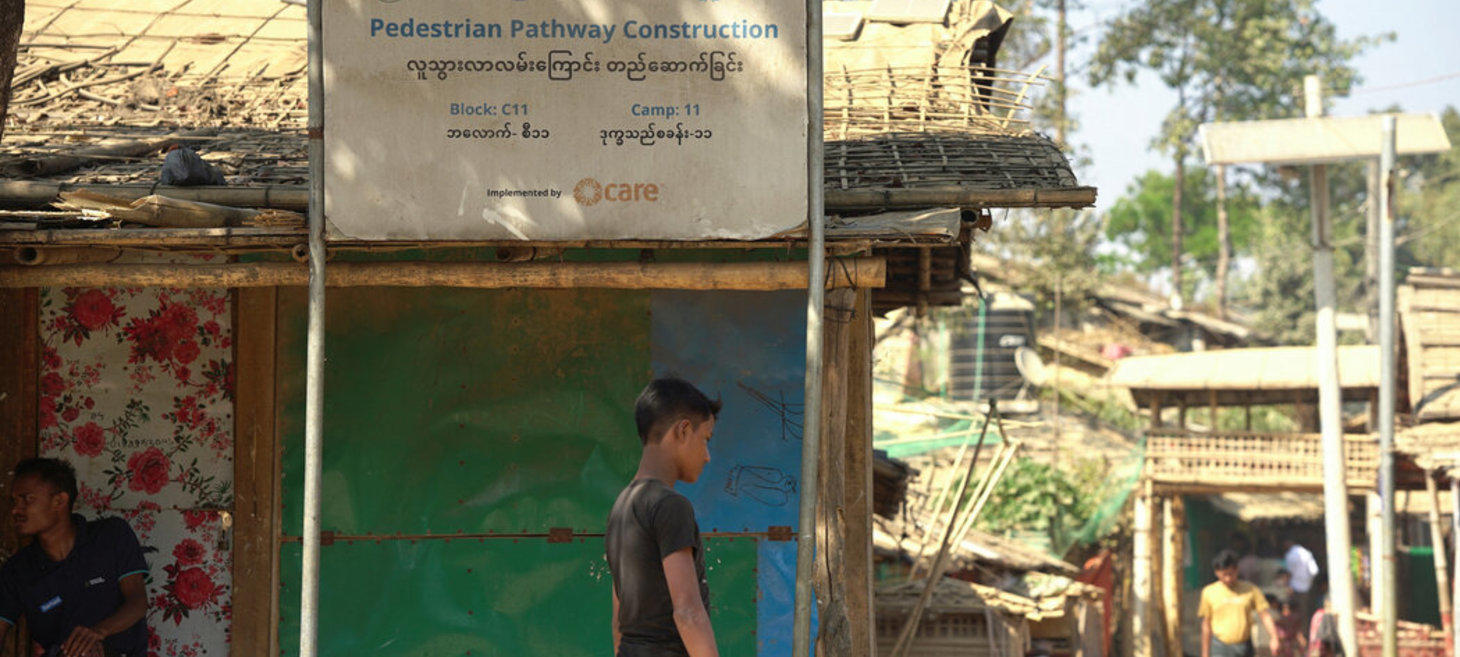
Myanmar Refugees’ Dreams of Living in America Dashed by Trump Orders
President Trump's policies, including pausing refugee resettlement and freezing foreign aid, have disrupted humanitarian efforts, particularly affecting refugees from Myanmar. These actions have halted the resettlement process for many, including those who had been approved after years of waiting, leaving them in despair. The suspension of funds has led to the closure of essential services like health clinics and learning centers in refugee camps, exacerbating the already dire conditions and posing health risks. Despite bipartisan condemnation of the Myanmar military's actions and the formal labeling of violence against the Rohingya as genocide during Trump's first term, American support has not matched the level provided to other nations, and recent cuts have further affected scholarships and aid programs for Myanmar students and refugees. The situation has left many refugees, who were hopeful for a new life in America, feeling hopeless and fearing for their future.
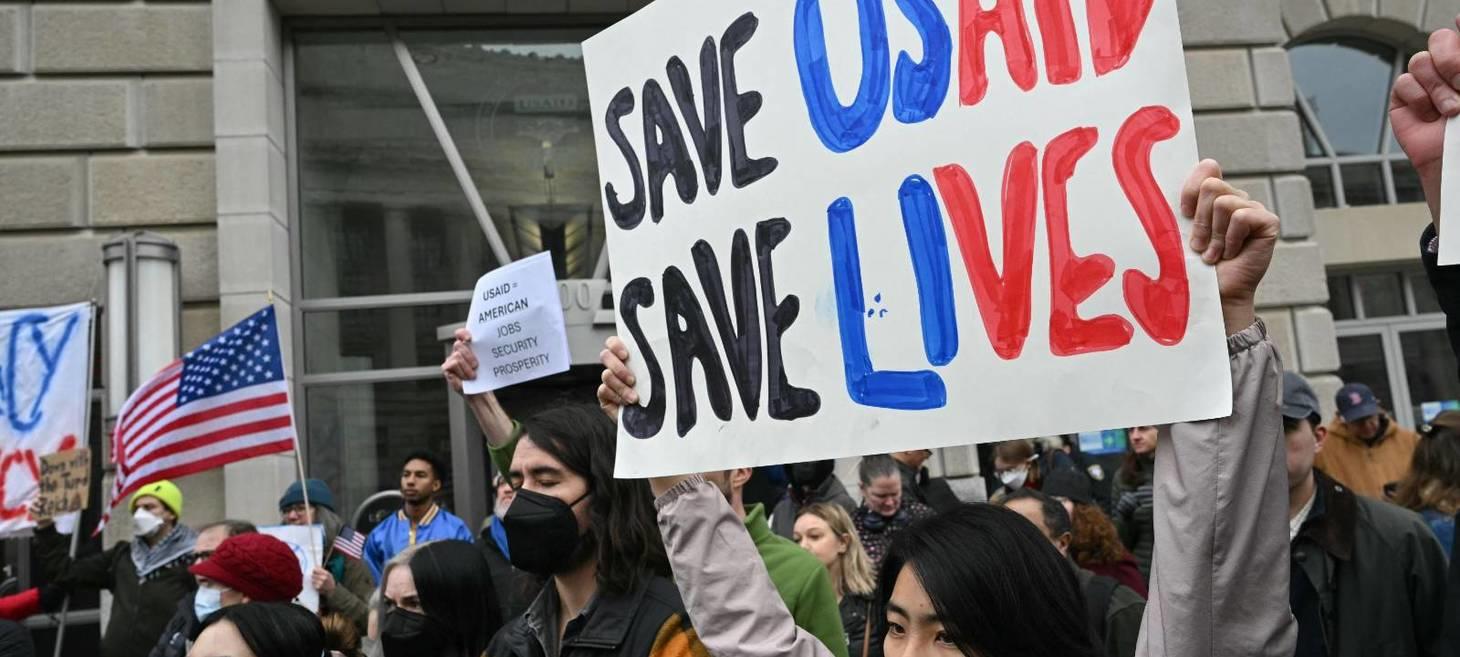
USAID cuts will cost lives in Myanmar
The Trump administration, with Elon Musk's support, is implementing severe cuts to US foreign aid, particularly through the dismantling of USAID, which is causing widespread chaos. This includes the likely indefinite suspension of the State Department’s refugee assistance and resettlement program. These cuts are significantly impacting Myanmar, leading to the closure of US-funded hospitals and health initiatives in Thai border refugee camps, along with massive cuts to education programs and safe house networks. These actions are leading to preventable deaths and the evaporation of resettlement programs. The administration's actions extend to cutting funding for democracy, human rights, and media initiatives, further isolating Myanmar. The European Union, Canada, Britain, Australia, New Zealand, and other democratic governments will need to compensate for the absence of the US in supporting humanitarian needs, human rights, and democracy in Myanmar.
Military
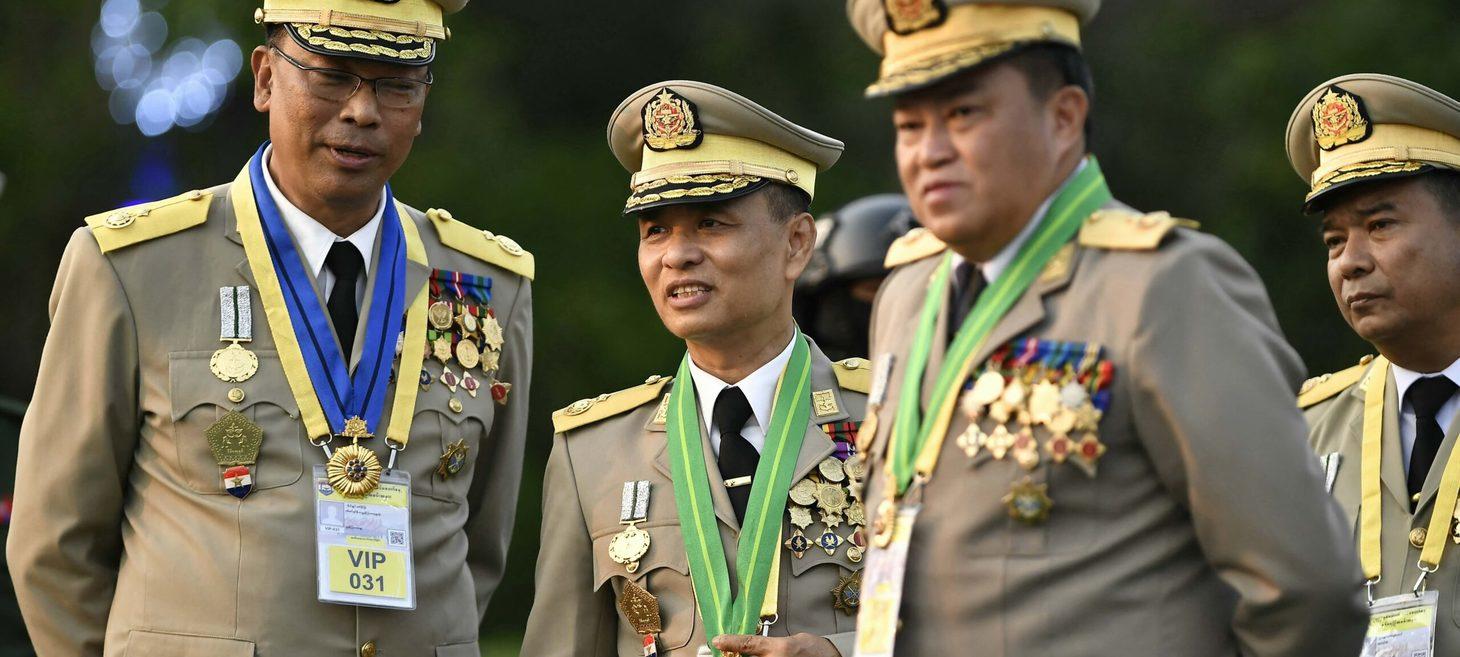
Homes near HQ in Naypyitaw evacuated, demolished as Myanmar military expropriates civilian property
The Myanmar military regime is clearing civilian residences near its bases in the Naypyitaw Union Territory, potentially targeting homes in up to 10 villages along the old Yangon-Mandalay highway for demolition. In November of last year, the Naypyitaw Council issued eviction notices to over 50 households in Thit Tat village, near a military parade ground, claiming the homes obstructed a planned road expansion. Residents challenged the eviction orders in court, but the Zayathiri Township Court ruled against them, ordering relocation by the end of February. Around 50 homes in a village older than Naypyitaw—founded in 1995—have already been evacuated and demolished, provoking fears among local civilians that their homes could be next. Details surrounding the case are undisclosed, and court records remain inaccessible to the public.